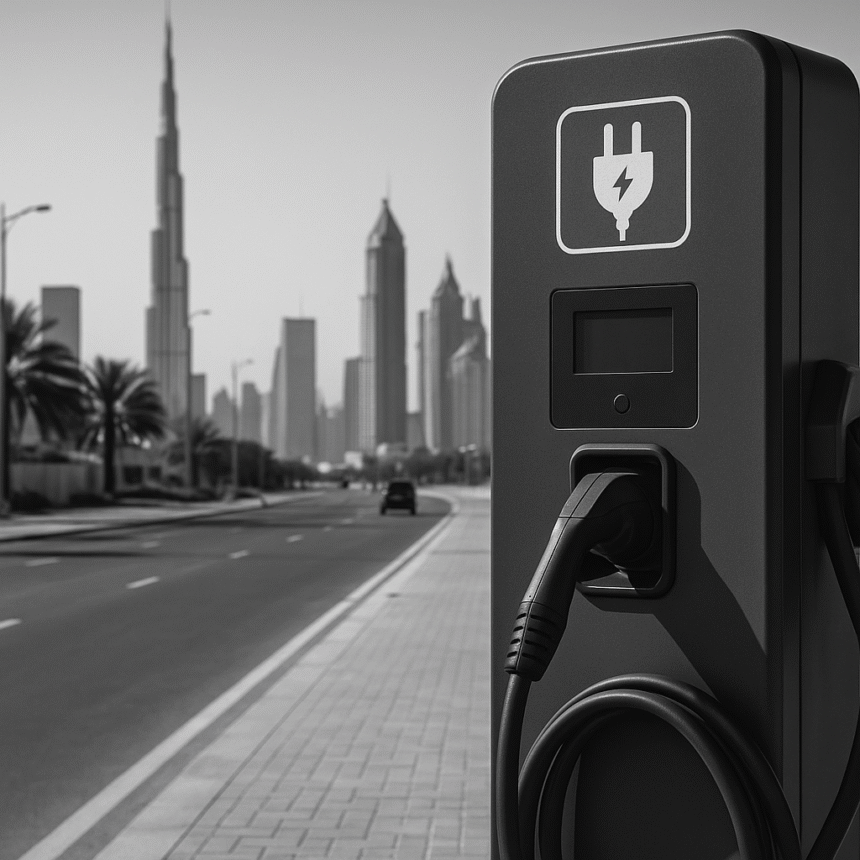EV Charger Supplier in Dubai: What Government Buyers Should Know
With the rapid growth of electric vehicles across the UAE, especially in Dubai, public sector entities are under pressure to expand EV charging infrastructure quickly and efficiently. Choosing the right EV charger supplier in Dubai is a critical step for any government-led project.
In this article, we break down the essential information that procurement teams, urban planners, and sustainability leads need to know when sourcing from EV charger suppliers in Dubai.
Why Government Buyers Must Choose Carefully
Electric vehicle charging infrastructure is a long-term investment. It affects not only operational efficiency but also public satisfaction and regulatory compliance. Choosing an EV charger supplier in Dubai requires alignment with local regulations, technical reliability, and long-term support.
Poor decisions can lead to delays in approval from authorities, frequent breakdowns, or a mismatch between installed systems and Dubai Electricity and Water Authority (DEWA) requirements.
Understand Dubai-Specific Licensing and Compliance
The EV sector in Dubai is regulated with clear technical and operational requirements. Here are the essentials government buyers should consider:
- DEWA Certification: All suppliers must provide equipment that complies with DEWA’s EV Green Charger specifications.
- CPO Licensing: If your project involves public charging operations, the operator (or its partner) must have a valid Charge Point Operator license issued by Dubai authorities.
- Shabik Platform Integration: Dubai mandates that public charging stations be integrated with DEWA’s Shabik platform for monitoring and billing.
Buyers must ensure their supplier understands and complies with these local requirements.
Know the Approved EV Charger Suppliers in Dubai
While the list of EV charger suppliers in Dubai continues to grow, only a few are trusted for government or utility-scale deployments. Here are a few recognized names:
- ABB: Known globally for its robust hardware and smart charging technology. DEWA has previously approved ABB equipment for various initiatives.
- Siemens: Offers scalable AC and DC chargers that meet DEWA and GCC regional specs.
- CATEC Mobility: A local supplier and integrator experienced in handling DEWA-linked deployments, including integration with the Shabik platform.
- EVBox (via local partners): Offers advanced features but requires customization to meet Dubai compliance needs.
Choose a supplier with a proven record of public sector projects and knowledge of UAE infrastructure standards.
Procurement Checklist for Government EV Charging Projects
Here’s a quick checklist that public procurement teams can follow:
- Technical Compliance
- DEWA-certified hardware
- Integrated with Shabik
- OCPP protocol support
- Licensing & Legal
- CPO license (if operating public stations)
- Local representation for warranty and maintenance
- Warranty & After-Sales Service
- Minimum 2-year hardware warranty
- Availability of spare parts and remote troubleshooting
- Installation & Civil Work
- Does the supplier handle civil and MEP work?
- Will they coordinate with DEWA during approvals?
- Scalability & Software
- Can the chargers be monitored remotely?
- Support for fleet management and load balancing?
- References
- Government project portfolio
- DEWA or RTA endorsements
Warranty and Maintenance: Look Beyond the Hardware
EV charging infrastructure needs ongoing attention. Warranty support must be clearly defined:
- What is covered (charger body, cables, internal electronics)?
- Are software updates included?
- Is there a response time commitment?
- Can the same supplier handle future upgrades?
Clarify these before signing a supply or turnkey agreement.
Final Takeaway for Government Buyers
When selecting an EV charger supplier in Dubai, don’t just chase the lowest price. Look for alignment with regulatory frameworks, supplier experience, and the ability to provide long-term value.
Public infrastructure projects in Dubai require partners that understand the intersection of government processes, electrical standards, and smart mobility goals.
Get input from legal and engineering teams early, and insist on working with suppliers who have verifiable success in the UAE.



Leave a Reply